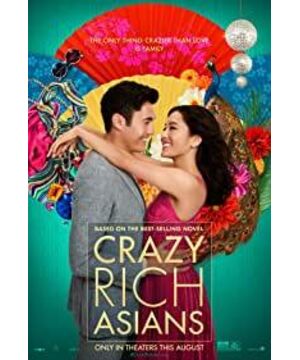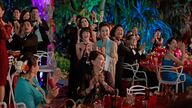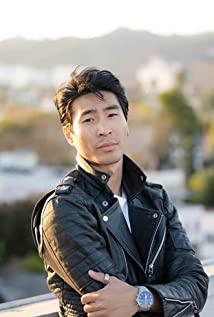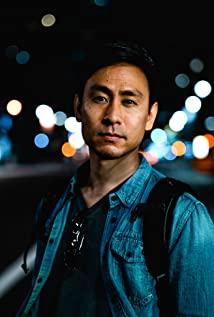The film is called "Crazy Rich Asians". The Asians here should refer to South Asian Asians and their international peers. This can be seen from the East Asian racial stratification of the original author from Singapore for the "Population of Science" for foreigners: from high to low, they are Indonesian Chinese, Singaporeans, Hong Kongers, Malay Chinese, Eurasian, New York and Asian Americans in Los Angeles, Chinese Americans in Connecticut, Asian Canadians in Vancouver and Toronto, Australian Chinese in Sydney and Melbourne, Thais, Filipinos in Forbes Park (rich area), American-born Chinese, Taiwanese, Koreans, mainland Chinese and ordinary Indonesians. In this ranking, per capita GDP has surpassed Spain and Greece. South Korea, which sits firmly on the throne of developed countries, can only be behind Indonesia, Thailand and the Philippines, while Japan in G3 is directly ignored. It is also possible that the author feels that Japan has “exited Asia”. Entering Europe" needs to deprive him of his qualifications to participate in the Asian Despise Chain.
The author’s evaluation system is “old money”, and Indonesian Chinese and Singaporeans are undoubtedly decent old money rooted in the author’s mind. They receive Western elite education, speak pure and fluent English, and blend well with the West. relation. In the interview, the author mentioned that there are some people in Asia who are rich and live very delicately. For example, his grandmother customized shoes from Paris as early as the 1930s. I don’t know if the author said so, he wanted to distinguish from the poor Asians/Chinese in the Western stereotypes? Try hard to let the West know: Look, don't confuse us, there are some Asians who are very rich, and we are different from the "upstarts" from mainland China. This chain of Asian contempt and the cultural attributes of the character yellow banana "outside yellow, inside white" in the movie made me start thinking after being surprised. Why is it so familiar and feels beyond the scope of Nanyang?
Finally I realized that Southeast Asian culture has shocking similarities with Latin America and even Africa. In Argentina, Venezuela and even the Republic of China, there are not a few old people who are well-dressed and lead an elegant European life. The beauty and elegance of the Argentine Madame Rose Veron is nowhere higher than that of Soong Meiling and his like, let alone the Nanyang Lao Qian. These places are like the European Union calling Italy and Greece as peripheral countries every day, these places are the fringes of the Western system. The core of the Western system is in Europe and the United States, and if it is narrowed down, it is in the United States, Britain, France and Germany. They are the centers of Western politics, economy, and technology, as well as the birthplace of cultural trends and standard-setters. A person's elegance, profound knowledge, and even the evaluation criteria of beauty and coolness depend entirely on Western aesthetics. These fringe areas are quasi-integrated into the Western system, just like the economics doctor of a second-rate school struggled to find the editor Long Yan Yiyue of Bo Ding Magazine. The people in the fringe areas, even the rich, are in a fragile cultural trend. Deficit countries, subconsciously, still need to rely on superficial labels such as "British way of life" and "authentic American nasal" to cultivate self-confidence, and still wait in fear and fear for the British and American people to recognize their identity and taste.
At the beginning of the film, the scene where Mrs. Yang, played by Michelle Yeoh, encounters discrimination in a foreign hotel and relies on money to fight back. Although it is very pleasant, it reveals an indescribable contradiction and sorrow. The spread of ideas will be slower than changes in economic power. That's right. You need to be rich long enough to make others realize that you are not a refugee. But will discrimination end? Adding eyeshadow to create deep eye sockets can make people feel like you look like a white person. Shouldn't you be laughed at? The ability to think independently, innovation and cultural prosperity may be the final answer. As a result, I admire Japan and South Korea, the transnational giants with real scientific and technological content, as well as their own complete system of cultural industries. How many Europeans and Americans are Japanese in the childhood? Pokémon go can ignite a summer, and the tip of the iceberg is a deep cultural power; Korean Kpop, no matter how superficial, can make a Brazilian man try to have a plastic surgery to look like a Korean, it is also considered an absolute success The culture is exported. Out of curiosity, I once asked a German girl with a video of Dimash, where do you think he is from, and the girl blurted out "Korea, only Koreans have such a perfect look", which made me marvel at how Koreans are in the hearts of some Europeans and Americans. Yan Ba image. I have also seen a message from a Filipino under the Youtube Chinese ancient puppet show: I used to think that Asians are very ugly and have a sense of inferiority. After watching this show, it turns out that we Asians can also be so good-looking. Very happy.
Asians can be cool and beautiful, not necessarily by trying to imitate the smiles of whites. This world has all kinds of beauty worthy of appreciation. Black supermodels are not beautiful, they are beautiful. Would you compliment her with "the appearance is black, the heart is white"? When Asians try to draw a clear line between the yellow race and want to declare to the world that our hearts are white, they have actually placed themselves in an inferior position. True self-confidence comes from inner abundance, from the economic and cultural status of the entire ethnic group. Interrupting the legs of one's own culture and squeezing oneself into the fringe of Western grand narrative can really bring us the long-awaited equal status? We are not an inferior nation, we have our own aesthetics and culture, we are just still developing. Fortunately, maybe our generation can decide whether this legacy of the colonial era can be swept into the garbage dump of history. Looking forward to that day, when Asian culture is reborn, when Asians do not have to be like Kong Yiji who is in fear, they are always cautious and afraid of flashing their waist.
View more about Crazy Rich Asians reviews











